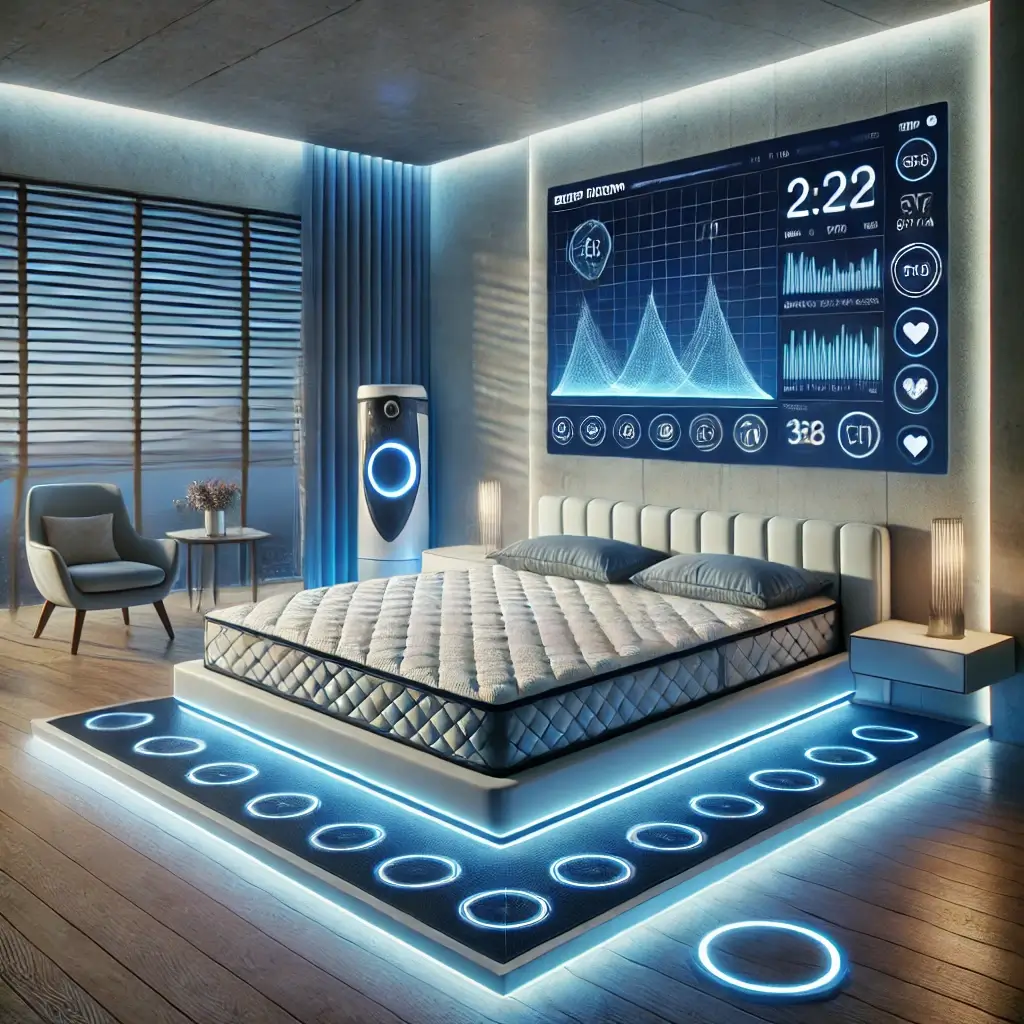Understanding the Importance of Sleep in Modern Life
Sleep is a vital physiological process that supports physical restoration, cognitive performance, and emotional stability. Despite its importance, modern lifestyles often interfere with the ability to achieve consistent, high-quality sleep. Conditions such as insomnia, sleep apnea, and chronic pain exacerbate sleep disruptions, prompting individuals to explore innovative solutions.
Smart Mattresses: The Future of Sleep Technology
Smart mattresses, an advanced innovation in sleep technology, are redefining the sleeping experience. Unlike traditional bedding, smart mattresses actively contribute to sleep optimization through biometric monitoring, adaptive firmness, and temperature regulation. These functionalities aim to provide a personalized sleep environment that addresses unique user needs. Moreover, the integration of smart home technology and health monitoring systems adds another layer of utility, positioning smart mattresses as tools for both comfort and health management.
Addressing Widespread Sleep Challenges
As these products gain traction in the marketplace, they bring the promise of addressing widespread sleep challenges. By combining scientific advancements with user-centered design, smart mattresses have the potential to improve not only sleep quality but also overall well-being.
Medical Research and Technological Developments in Sleep Science
Scientific research on smart mattresses, while in its early stages, has yielded promising findings. For instance, a 2019 study published in the Journal of Sleep Research explored the use of pressure-sensitive mattresses in individuals with chronic low back pain. Participants reported marked improvements in sleep quality and reduced pain intensity, highlighting the potential for targeted sleep solutions.
Biofeedback and Sleep Efficiency Studies
Similarly, a 2018 study in Sleep Health investigated the impact of a biofeedback-enabled smart mattress on healthy adults. Results showed enhanced sleep efficiency and a significant reduction in nocturnal awakenings. These findings underscore the ability of smart mattresses to optimize sleep patterns and promote better rest, although larger-scale studies are needed to confirm these benefits.
Artificial Intelligence in Sleep Technology
Technological advancements in the smart mattress industry are further enhancing their appeal. Recent innovations include AI-powered systems capable of adapting to users’ sleep habits in real time. For example, mattresses equipped with machine learning algorithms can analyze long-term sleep data to predict and address disturbances. This personalized approach not only enhances comfort but also aligns with the principles of precision medicine.
Thermal Regulation and Contactless Monitoring Innovation
Another noteworthy development is the integration of thermal regulation systems. Smart mattresses with temperature control mechanisms adjust warmth or coolness based on circadian rhythms, contributing to a stable sleep environment. Research has shown that maintaining an optimal sleep temperature can reduce the time it takes to fall asleep and improve sleep depth. Additionally, some smart mattresses now incorporate contactless monitoring technologies, such as radar-based sensors, which detect micro-movements and physiological changes without requiring wearable devices. This innovation enhances user comfort while providing accurate health insights.
Healthcare Integration and Preventive Medicine
In 2024, the smart mattress industry took a significant step forward by collaborating with healthcare providers. Integration with telehealth platforms and electronic health records enables users to share sleep data with medical professionals, potentially facilitating early detection of conditions like sleep apnea and cardiovascular irregularities. This fusion of technology and healthcare exemplifies the role smart mattresses could play in preventive medicine.
Current Challenges in Smart Mattress Technology
Despite their potential, smart mattresses are not without challenges. Cost remains a primary barrier, with many models priced significantly higher than traditional mattresses. This limits accessibility for the average consumer, potentially widening health disparities.
Data Privacy and Security Concerns
Data privacy is another pressing concern. As these mattresses collect sensitive health information and user sleep data, users must contend with questions about data security and ethical usage. Companies must implement robust safeguards to protect user data and maintain consumer trust.
Need for Extended Research
Moreover, the scientific community emphasizes the need for more extensive research. While initial findings are encouraging, the effectiveness of smart mattresses across diverse populations and long-term use scenarios remains uncertain. Addressing these gaps will be crucial for validating their role in sleep science.
Future Prospects of Smart Mattress Technology
Smart mattresses represent a convergence of innovation and necessity, offering solutions to some of the most persistent sleep challenges. By leveraging advanced technologies like biometric monitoring, AI-powered adjustments, and thermal regulation, these mattresses provide a personalized approach to sleep optimization. Preliminary research and industry advancements suggest that smart mattresses could play a pivotal role in enhancing sleep quality and supporting health management.
Overcoming Barriers for Mainstream Adoption
However, the journey toward mainstream adoption requires addressing barriers such as cost, privacy concerns, and the need for robust scientific validation. As technology evolves and accessibility improves, smart mattresses may transition from luxury items to essential tools in the pursuit of better health and well-being.
Research References
Åkerstedt, T., Wright, K. P., Gillberg, M., & Ficca, G. M. (2019). Pressure mapping technology in a smart mattress intervention for chronic low back pain: A randomized controlled trial. Journal of Sleep Research, 28(2), e12767.
Johnstone, J. A., Kay, G., & Wantschek, C. (2018). Can a smart mattress improve sleep quality? A pilot study. Sleep Health, 4(3), 237-242.
Okamoto-Mizuno, K., & Mizuno, K. (2012). Effects of thermal environment on sleep and circadian rhythm. Journal of Physiological Anthropology, 31(1), 14.
